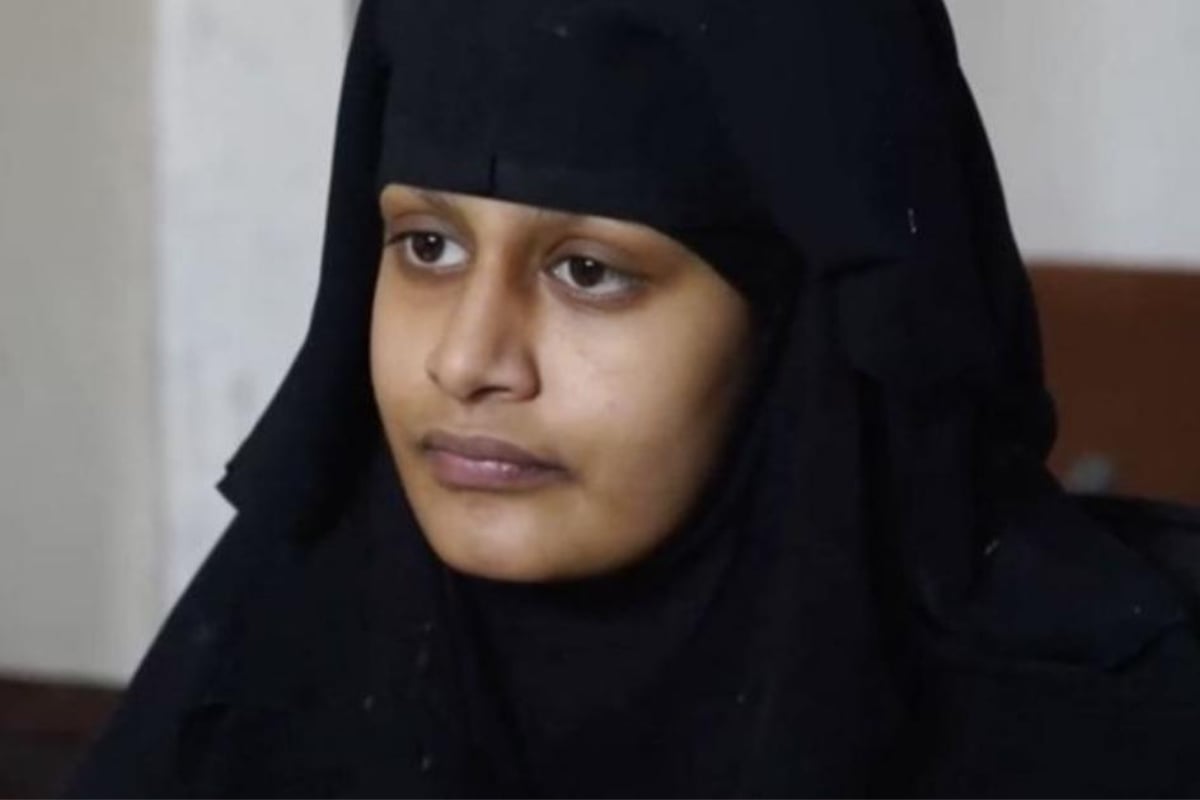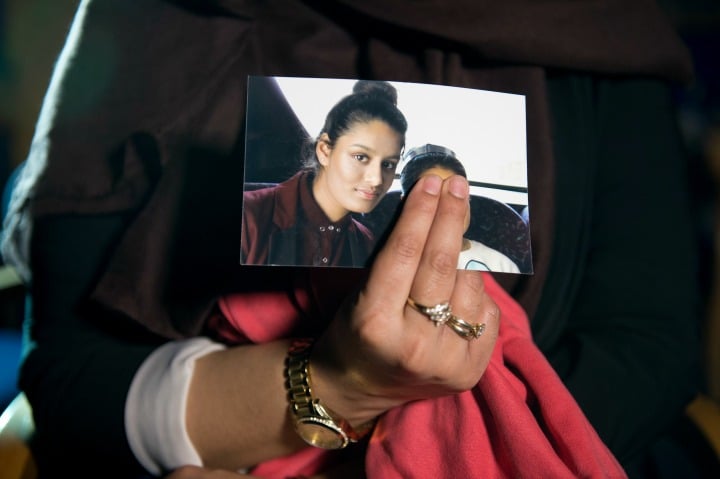
In recent weeks the news of ISIS brides wanting to return to Western nations has been dominating headlines.
Women such as Shamima Begum are living in refugee camps, pleading with their home countries to allow them to return.
In most cases, they are being denied.
Listen to The Quicky: What happens when ISIS brides want to come home? Post continues after audio.
But how did they get there? What kind of propaganda did the Islamic State put out there to get these teenagers – some as young as 15 – to leave their lives to join the fight in Iraq and Syria?
It turns out, exploiting typical teen desires and using platforms they were already familiar with – namely social media – was a major part of the IS recruitment drive.
Jacinta Carroll, a senior research fellow in counter terrorism at the Australian National University’s National Security College told Mamamia‘s new podcast The Quicky the Islamic State was very good at honing in on the natural desire for justice that teens and youths have.
She said those who joined the caliphate had some kind of precondition.
“And that is either that the person feels strongly about a particular issue, they might come from a family or identify with a particular group that feels that there is some kind of injustice, but also what we’ve seen in those cases that we’ve been able to dive into, those people who have come out of Iraq or Syria… Is that many people, particularly those who were from the west, is that they were driven from the sort of thing that drives a student to protest,” she explained.


Top Comments
"She said ISIS was very good at creating a romanticised version of what lives could be like for these young people in the Islamic State."
The poor things. It's almost like ISIS and it's horrific crimes hasn't been heavily covered by every aspect of the media for it's going on 20 year existence. If their excuse is "I was too dumb to do even a modicum of research before running away to a warzone" then bless them, they're dumber than I thought.
To be fair, what young person trusts or even follows the mainstream news? I suspect it's even worse nowadays in the US in particular, with their president calling everything he doesn't like "fake news"
The bit I don't get is why their actual, lived experience of "the violent reality" hasn't helped them realise just how false that initial marketing was: perhaps they lack the emotional maturity to admit they were terribly mistaken in the first place? It's a tough way to grow up, and likely to cost her.
I agree,their role was to pump out warriors for the caliphate and they fell for the lies
Seems very similar to what happens in cults and with cult members, even when people were treated like dirt, torture, abused etc, they still justified it and often times stayed in the cult. Depressing.